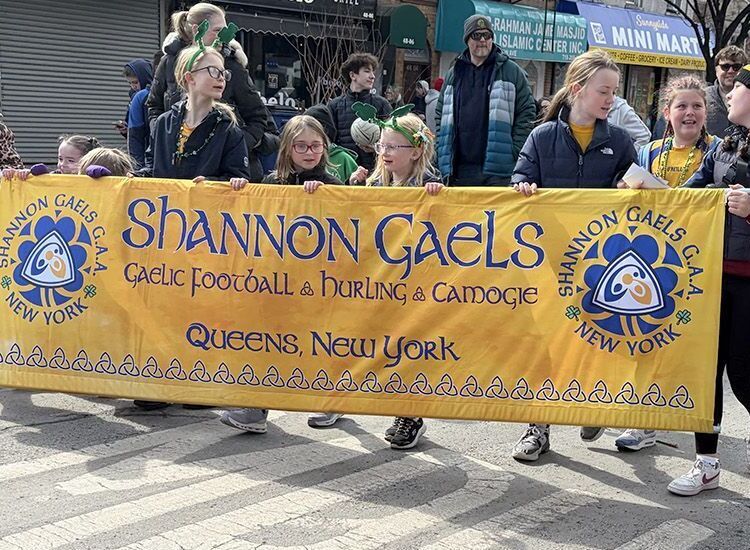The Northern Ireland Deputy First Minister had a hugely significant vote in his political pocket, one that he was losing no opportunity to present as a major turning point in the drawn out peace process.
And in elevating the importance of the recent vote in favor of devolved policing and justice powers, McGuinness was also taking the opportunity to lavish praise on the role that Irish America has played in the political process that is underpinning the effort to secure a lasting peace.
Speaking to reporters in an interview in New York last Thursday, McGuinness said that there was a "very strong and very powerful" relationship between the Obama administration and political leaders in Northern Ireland.
In tandem with this, McGuinness asserted, the bonds between the Irish people and Irish America had never been stronger.
While there might be differing ideas on how best to proceed, he said he felt that "all the main sections of Irish America" were now united behind the peace process.
"The attention we get, not just on St. Patrick's Day, but all year round, is testimony to those bonds," McGuinness said.
The phone call made by former president Bush to (British Conservative Party leader) David Cameron, said McGuinness, had clearly showed that U.S. involvement was "not a charade or put-on" but a genuine and sincere commitment.
Both the Bush and Obama administrations had a lot to be proud of in the context of progress in recent years. America's role, nevertheless, was changing, McGuinness opined.
This changing role had, he said, been best articulated by Secretary of State Hillary Rodham Clinton in saying that the focus of U.S. involvement, "at our request," was shifting from the political to the economic.
"Peter and I had a tremendous conversation with Hillary Clinton," said McGuinness.
Part of that conversation had focused on an extension for the International Fund for Ireland - due to sunset this year.
"Everybody needs to benefit from peace," said McGuinness, who expressed the view that assistance from the IFI was still needed "in areas of deprivation and inequality" in the North.
Secretary Clinton, he said, had been "very supportive" in responding to his and First Minister Robinson's pitch for an extended IFI and had promised to "talk to people."
McGuinness added that there was "not a blade of grass" between himself and Robinson with regard to the necessity for tackling social disadvantage.
McGuinness was also effusive in his praise for the U.S. economic envoy to the North, Declan Kelly, who had "hit the ground running" and was busy making the case that the economic downturn actually made Northern Ireland a more attractive place for U.S. investment because of its comparatively low cost base.
This case would be presented again in the now planned one-day investment conference to take place in Washington in the fall.
Disputing the view that his relationship with Peter Robinson was not as close as that he enjoyed with Ian Paisley, McGuinness said he had been "hugely concerned" when Robinson's recent family difficulties had emerged into public view.
"I don't like to see any family go through difficulties," said McGuinness. He said that he had been concerned for Robinson as a human being, and not just over any impact those difficulties might have posed for the political process.
While defending Robinson, McGuinness was less than praising in his views when it came to other North party leaders, specifically Ulster Unionist Party leader, Sir Reg Empey, and the SDLP's recently elected leader, Margaret Ritchie, both of whom are ministers in the Executive headed by himself and Robinson.
The institutions of government had never collapsed since Sinn F









